A Lover's Guide to American Playwrights
Lucy Thurber
A Lover's Guide to American Playwrights is a regular column by Todd London. It is part of an ongoing series of tributes to contemporary playwrights. Mostly begun as speeches at New Dramatists—for career achievement awards, to mark the end of seven-year residencies, or, in a few cases, as eulogies—these portraits celebrate the body of work, lives, and singular gifts of those brave, ferocious, foolhardy souls of those who write plays for the American theatre.
Lucy Thurber: The Hill Town Plays
Beginning in late August and running through the end of September, the brave Rattlestick Theater in New York City will open and run—simultaneously—five Lucy Thurber plays in five separate spaces across the city, in collaboration with five different directors, most close colleagues of Lucy’s. The plays—Scarcity, Where We’re Born, Killers & Other Family, Ashville, and Stay—will play under the rubric “The Hill Town Plays,” for the area of Western Massachusetts in which they’re set. For a measure of how audacious/courageous this project is, I offer this: here is a New York theatre celebrating a body of work by a single playwright by mounting plays that have, with the exception of Ashville, already and recently been seen in New York (three at Rattlestick, one at the Atlantic Theater Company), several that have been dissed (or D’Isherwooded) by the New York Times. In other words, Rattlestick has something very deep in common with Thurber: a) courage; and b) they both know what’s important to them or, to put it more precisely, they both know where they live.
Lucy Thurber was born in rural Massachusetts—close to but a world away from all those fancy colleges they got there. Her home was a kind of crazy, a kind of not enough and too much all at once, a mess of that scarcity and abundance that informs so much of her work. Where We’re Born is the title of one of my favorite Lucy Thurber plays, and, like so many others—Scarcity, Bottom of the World, Killers & Other Family, and Stay—it could apply as easily to her whole body of work as to a single piece of it.
Lucy Thurber was born in rural Massachusetts—close to but a world away from all those fancy colleges they got there. Her home was a kind of crazy, a kind of not enough and too much all at once, a mess of that scarcity and abundance that informs so much of her work.
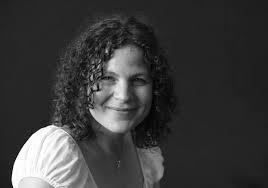
Lucy knows where she was born, and she carries that place deep inside her, even as she makes new homes, like the one she’s made here. Similarly, her people—and they are always people, never merely characters (she loves them too well for that)—her people carry with them the place they come from, whether they’re still stuck there or whether they found a way out.
I should clarify that. Lucy’s people are always stuck where they were born, even if they’ve found a way out. There’s no denying where they were born; if they try to deny it—or even if they just try to deal with it in peace—it’ll show up unannounced. Stay is a good example. In that play, Rachel, a thirty-something writer and first-time professor, fights to keep up with student papers and meet a looming deadline on her first novel. A suicidal student stalks her, followed by that student’s equally obsessive boyfriend. Meanwhile, Rachel’s depressive mother calls at all hours, leaving urgent, pleading messages. Rachel’s brother, Billy, who escaped from rural Mass before her, making his way as a scholarship student in prep school, college and law school, comes knocking, too. He is Rachel’s original home intruding, and he is, like his sister, marked by its violent love.
Billy
I got fired today.
Rachel
What?
Billy
Dad’s phone call got me fired.
Rachel
That’s impossible—
Billy
Not really, your most desired client hears a crazy drunk man on the loud speaker calling one of your lawyers a pussy cocksucker, it doesn’t really inspire confidence does it?
Rachel
Billy…I’m sorry. They can’t do that. Can they?
Billy
I was up for partner this year.
Rachel
I know.
Billy
I really wanted it. I really…I’m a fucken good lawyer Rach.
Rachel
I know.
Billy
Rachel…?
Rachel
What baby?
Billy
It might not have just been Dad’s phone call…
Rachel
What do you mean?
Billy
The [boss’s] daughter-slash-secretary…
Rachel
Yeah?
Billy
I was kinda fucking her.
Rachel
Oh shit…
Billy
I know, I know it’s just she was so young and rich. This cute little rich button and she’d get so hot when I’d tell her stories about Mom, Dad and my poverty roots. And she was a literary major and guess whose book of short stories she liked to carry around with her?
Rachel
Jesus…
Billy
Yup. Her first day of work, there it was peaking out of her Marc Jacobs handbag. And I was like, “Hey you’re reading my sister’s book.”
Rachel
Oh Billy…
Billy
I think she liked to pretend I was all those rough and tumble boys you write about in your stories—
Rachel
You are one of those boys—
Billy
I think it made her hot—
Rachel
Billy—
Billy
It’s just that all of a sudden there was Dad’s voice calling me a pussy, and she was hearing that voice for real. She was hearing it all for real and I wanted her to turn it off and I was yelling and she just wasn’t moving fast enough and then I kinda…I kinda…
Rachel
You kinda what?
Billy
Slapped her and that’s when her dad walked in—
Rachel
Jesus—
Billy
And it was weird, how much I liked her seeing me like that. The look in her eyes, a split second before my hand landed on her face. And I wondered, is that what my eyes looked like the second before Dad’s hit landed? Did it make him feel like he existed too? And then all I felt was shame. Do you think Dad ever feels shame Rachel?
Rachel
I don’t know…
Billy
And what about you? Do you feel ashamed?
Rachel
I just…
Billy
Cause it scared me how good it felt. I mean honest to God Rachel it felt really good.
It’s a double intrusion, really, Billy into Rachel’s quiet and their father into Billy’s fragile, arduously constructed work world. And it’s just one instance of the tenacity of origin for the people in Thurberville. Their original homes mark them. They carry them on our backs—as both shell and deformity. They carry them waking and in dreams. They are captives of where they were born, and the harder it was to escape, the harder it is to remain free.
And Lucy’s young characters are desperate for escape. Earlier versions of Billy and Rachel, ages sixteen and fourteen, appear, in Scarcity. In that play a teacher offers Billy a way into Deerfield Academy, a prep school, which is a ticket out of the poverty, alcoholism, boredom, and the incestuous oppression of love at home.
Billy
I can’t breathe. I can’t move, everyday’s just the same. I’m going crazy Rach. Can’t you see it? I’m not gonna make it if I stay—
Rachel
Billy—
Billy
I’ll just start hitting everything. I’ll hit it till it breaks—
Rachel
I want—
Billy
You know what they got over there Rachel? They got a salad bar. A fuckin’ salad bar. One of those machines where you can get fruit punch and soda. They got this big gym and a smoking area. You never seen anything like it. And it’s quiet, Rach. There’s nobody fighting over there.
Rachel
I want to come too.
Billy
I know.
Rachel
I’m not like them.
Billy
I know.
Rachel
I’m not like you, either.
Billy
You’re better than me—
Rachel
Don’t—
Billy
You’re kinder than me—
Rachel
Please don’t—I want to come too.
Billy
You’re stronger than me.
Rachel
Billy, I’m not.
Billy
You have to be.
Rachel
I’m not. I can’t breathe.
Billy
You have to be, you have to be, please, please say—say—I need you to say it—
Rachel
Don’t make me.
Billy
I’m not gonna die here. I can’t go without it.
Rachel
Billy—
Billy
I can’t go without it. I can’t breathe without it. I can’t wake up in the morning without it.
Rachel
You know what’s scary? As much as you talk, you don’t know if once you’re out there, you’ll even want to come back for me. Do you know how much I can take?
Billy
I don’t know.
Billy
Please Rachel, please…
Rachel
Yeah, yeah. Okay. I’ll let you go.
Billy
Thank you…
Rachel
And…I want…I want you to go…
Billy
(Laying his head in her lap.) Thank you…
Rachel
Now promise you’ll come back for me.
They do come back for us, our families, in Lucy’s world, but not always in the ways we’d hoped for. They phone us at work and while we’re making love. They show up at the restaurant where we’re eating and punch out the waiter. They form armies to protect us, even though we can never be sure they’re actually on our side. We can’t be sure their protection won’t, in the end, be the death of us.
Our families teach us violence and they teach us love, usually all twisted up. Few writers have explored this tangle as consistently and compassionately as our huge-hearted Lucy. Here’s an example of the mess from Ashville—another play of place. Shelly’s the mom, an alcoholic, drinking through the night with her boyfriend Harry; Celia’s her sixteen-year-old, the daughter who keeps everything and everyone together, even as she’s starting to come apart. Jake, mentioned here, is Celia’s devoted nineteen-year-old boyfriend, who provides both ballast and cigarettes for the household.
Our families teach us violence and they teach us love, usually all twisted up. Few writers have explored this tangle as consistently and compassionately as our huge-hearted Lucy.
Shelly
Jake just left.
Celia
Okay.
Shelly
He wants you to call him.
Celia
Okay.
Shelly
Call him.
Celia
I will.
Shelly
Call him right now.
Celia
I have to go to the bathroom.
Shelly
Call him right now!
Celia
Okay.
(Celia starts to exit)
Shelly
Don’t you O.K. me you little bitch!
Celia
Stop yelling! Fucken stop yelling!
Shelly
Don’t you dare yell at me, little girl! You don’t know shit! Cause your worthless. Pretty but worthless. And it’s my fault, don’t try to tell me otherwise. I’m trying to talk to you! I’m trying to tell you I love you.
Celia
O.K. Ma. (Celia starts to exit.)
Shelly
(Gets up and grabs Celia by the hair, and forces her to her knees. She yanks Celia’s head back and forth. Celia struggles trying to get up.) I’m trying to tell how beautiful you are. I’m trying to tell you I LOVE YOU! I LOVE CELIA! (She jerks Celia’s head back and forth harder and harder in her rapture.) I LOVE CELIA!
(From the ground Celia punches her mother in the stomach. Shelly falls back. Celia scrambles to her feet.)
Shelly
(Sitting back in the chair and crying.) but I love you. I love you Celia. You hurt me. You hurt me Celia and I love you. Why do you treat me this way? (Pause, Shelly cries.)
Celia
Shit, shit…I’m sorry. Are you O.K.? Don’t cry Ma I hate it when you cry…
Shelly
You’re not supposed to hit your Mother.
Celia
I know ma.
Shelly
Good girls don’t hit their Mothers, they respect them.
Celia
I know.
Shelly
And I want you to be a good girl.
Celia
I am.
Shelly
I want you to be okay.
Celia
I know Ma.
Shelly
No, really okay.
Celia
I know Ma. I know that. It’s all right.
Shelly
You have to promise me, cause I’ll kill myself otherwise.
Celia
I will. I promise I will.
Shelly
I love my daughter Harry. I love her.
Harry
Yeah. (He pours her a drink) Yeah, I know you do baby.
How can anyone untangle this? How can anyone get unstuck? Even if you get away, you’re twisted in it. It’s twisted in you.
Those who would escape from that stretch of Western Massachusetts where they were born, which is to Lucy what Yoknapatawpha County was to Faulkner, find themselves trapped between worlds. They are double agents for their families of origin and for the worlds they fled to. They are kids without a country, spies in the cold. Too often, they respond by destroying one home or another.
In Where We’re Born, Lily returns from her first months of college to the people she left behind, specifically her cousin and his girlfriend. These are the people who saved her from this nearby/faraway place. These are the people whose love she knows to be true. In return—and because no one can straddle two worlds for long—she literally devastates them with love. She sleeps with both of them and confesses to both of them. Of course, she has to leave. Of course, they can never be together in the same way again. This is the way she lays waste to the place she left and to the people in it. This is the way she makes certain she can never return.
In a more beneficent, artistic sense, Lucy has recently exploded her own work, or at least its long-explored framework: intimate, working class, domestic, naturalistic. We might have sensed her itch to keep moving when the floating angel that appears to the writer Rachel in Stay. Career minutes later, in Monstrosity, the play she produced as part of the beautiful 13P theatre company, she blew it—and us—all away. Suddenly we were in the world of Shakespearean history, which was also a science fiction world, a fascist realm of cold, corporate power, in which the resistance fighters were armed adolescents. This monumental play, with its cast of dozens, its leap of seven years (hey!) and then some, its battlefield of the dead and dying, its twin portrayals of the madness of power and the insanity of war, is one of the most ambitious, exciting things I’ve seen in years. Then another explosion—an epic Brechtian musical—blam! Dillingham City. And another after that, the brilliant, passionate play The Insurgents. Will she ever return? No, she’ll never return.
And yet, for all these astonishing creative blasts, you see her obsessions intact: 1) class—who gets written about and how they really live; 2) gender—who leads (hint, in Lucy it’s almost always the woman hero, flawed though she may be); 3) sexuality—oh, how deeply and naturally her women desire women and her men men; how pervasive and fluid sexual love is in her work; 4) love; 5) place; and, increasingly, 6) power, especially as it relates to class and economics. Lucy has found a way, first through a rigorous, insistent focus, a kind of canonical burrowing, and then through explosive, expansive experimentation to do something few have done: that is, to marry the vulnerable, loving, struggling, solitary self to the bloodless yet bloody mechanisms of power. She has pulled off something incredibly distinctive: establishing herself as a nakedly personal playwright and as a frankly, sweepingly political one.
“Don’t make me do this all by myself,” says a character from Bottom of the World, in what could be Lucy’s communitarian motto. “What?” the character’s friend asks. “Life,” she answers.

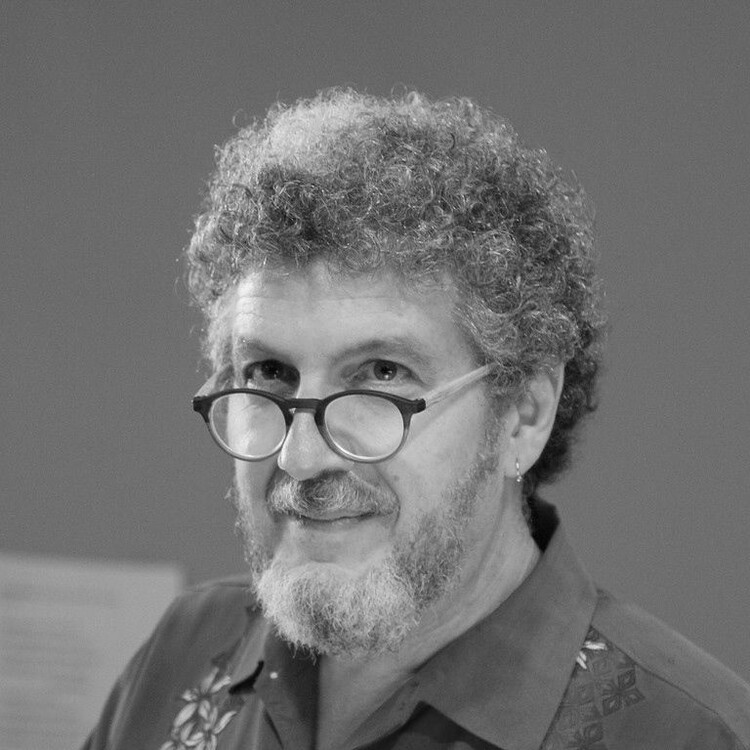
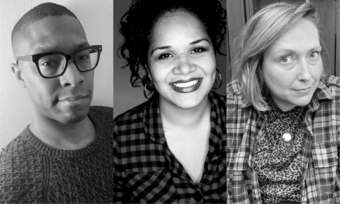




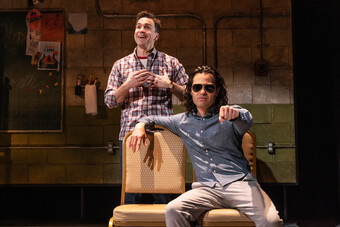


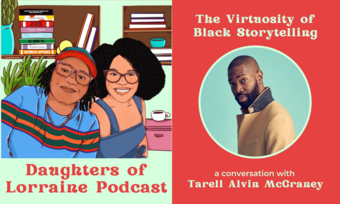



Comments
The article is just the start of the conversation—we want to know what you think about this subject, too! HowlRound is a space for knowledge-sharing, and we welcome spirited, thoughtful, and on-topic dialogue. Find our full comments policy here
This is such a moving tribute to a terrific and fearless writer. Thank you, Todd London, you beautiful champion of playwrights!